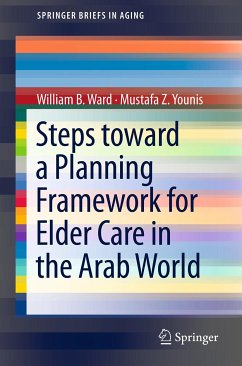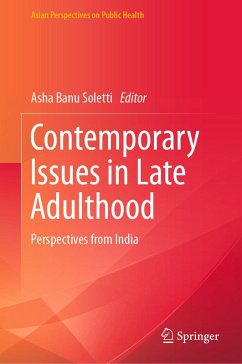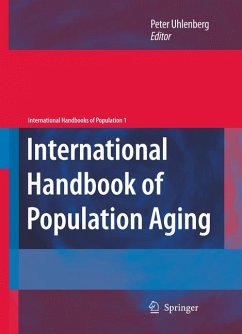
Steps Toward a Planning Framework for Elder Care in the Arab World (eBook, PDF)
Versandkostenfrei!
Sofort per Download lieferbar
40,95 €
inkl. MwSt.
Weitere Ausgaben:

PAYBACK Punkte
20 °P sammeln!
This book reviews the elder care literature pertaining to the Arab world and proposes steps that can be taken to improve the health and quality of life of older people in this region. Organized in three main sections (Program Assessment, Program Planning, Conclusions and Recommendations), the book addresses such topics as developing a conceptual framework; Arab world elder demographics; quality of life issues; demand for services; training issues; training capacity and capabilities; and conclusions and recommendations for improving the health of older persons in the Arab world. While the count...
This book reviews the elder care literature pertaining to the Arab world and proposes steps that can be taken to improve the health and quality of life of older people in this region. Organized in three main sections (Program Assessment, Program Planning, Conclusions and Recommendations), the book addresses such topics as developing a conceptual framework; Arab world elder demographics; quality of life issues; demand for services; training issues; training capacity and capabilities; and conclusions and recommendations for improving the health of older persons in the Arab world. While the countries of the Arab world have the advantage of a unified language and culture that can be used to expedite development of area-wide approaches to a system of elder care, the lack of economic and political unification (such as common market and open trade) along with institutionalized age discrimination (some Arab countries restrict hiring for government and private jobs to persons younger than 45) present barriers to improving the health of older people. In addition, modernization and ease of transportation have resulted in a heavy focus on Western-style fast food, with an accompanying increase in chronic diseases such as hypertension, cardiovascular disease, diabetes, and cancer.
Dieser Download kann aus rechtlichen Gründen nur mit Rechnungsadresse in A, B, BG, CY, CZ, D, DK, EW, E, FIN, F, GR, HR, H, IRL, I, LT, L, LR, M, NL, PL, P, R, S, SLO, SK ausgeliefert werden.













